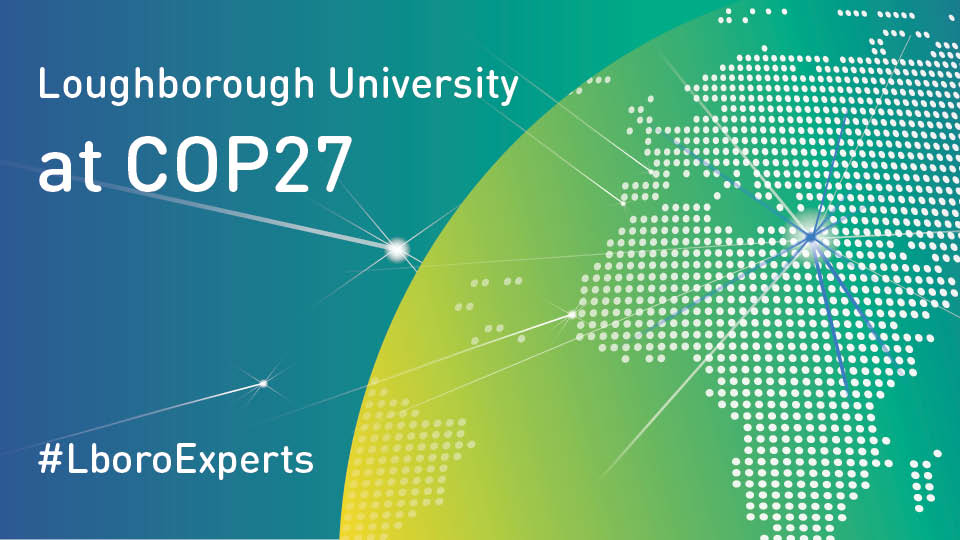This will take place at COP27, as part of series of events taking place in the Sustainable Development Goal 7 (SDG 7) Pavilion. The SDG7 Pavilion is being hosted by SEforALL with the support of the Global Energy Alliance for People and Planet (GEAPP) and other sponsors.
As global leaders gather for the 27th Conference of the Parties (COP) in Sharm el-Sheikh, Egypt, recently released United Nations reports show that time is running out for humanity to avoid irreversible, catastrophic changes due to climate breakdown. The reports reinforce the overwhelming scientific consensus that urgent, collaborative action to drastically reduce global greenhouse gas emissions is required to avoid irreversible climate disaster.
The MECS-SEforALL session will enhance global understanding of clean cooking and position energy-efficient electric cooking devices as a game-changing critical climate solution. It will bring together utilities, high-level government representatives, development banks and philanthropic organisations to discuss how a pivot to eCooking can leverage the investments made in infrastructure improvements to rapidly expand levels of cooking with electricity.
The session – which is titled 'The Twin Opportunity: Electricity Spurring a Clean e-Cooking Transition’ and will take place on 12 November 2022 from 10.30am-1pm EET – will urge governments to take up the opportunity to incorporate eCooking (cooking with electricity) into integrated energy planning and realise multiple wins for climate, environment, health, gender and livelihoods.
One in three people still rely on polluting biomass fuels, such as wood and charcoal, to cook with. Those who are most likely to lack clean cooking access are also those who have contributed the least to the climate crisis. Expanding access to clean cooking improves health, empowers women and girls, protects the environment and bolsters livelihoods. Increasingly, evidence is also pointing to the viability, cost effectiveness and user satisfaction that energy efficient electric cooking devices provide.
While significant progress has been made in enhancing access to electricity over the last decade, these gains have largely been disconnected from the enduring problem of clean cooking. Now they have to be used to make significant gains in expanding access to clean cooking, especially in regions and countries with the fastest electrification rates and the cleanest grids. Utilities are increasingly starting to realise the potential that the rapid expansion of eCooking has in helping to stimulate consumer demand in cases where the country has excess generation capacity.
Professor Ed Brown, Loughborough University’s Professor of Global Energy Challenges and MECS Co-Director, said: “We are at a critical time where urgent action by the international community is needed to close the emissions gap to avert the worst impacts of climate breakdown.
“Clean cooking, especially the use of modern, energy-efficient electric cooking devices, is a frequently overlooked yet critical climate solution for decarbonisation. An overwhelming evidence base points to the huge, untapped twin opportunities for governments to leverage investments made in electric infrastructure to rapidly expand access to cooking with electricity, which would benefit the climate, environment, people’s health and their livelihoods.
“That’s why we’re urging governments to incorporate clean, electric cooking into integrated energy planning.”
Find out more about all the sessions taking place in the SDG7 Pavilion.
Register to participate virtually in the SDG7 Pavilion sessions.
Notes to editors
About Modern Energy Cooking Services (MECS)
MECS is a seven-year programme funded by UK Aid (FCDO) which aims to spark a revolution through rapidly accelerating the transition from biomass to clean cooking on a global scale. By integrating modern energy cooking services into energy planning, MECS hopes to leverage investment in renewable energy (particularly in electricity access, both grid and off-grid) to address the clean cooking challenge.
According to the ISO voluntary performance targets for cookstoves, modern energy cooking is classed as ‘Tier 5’ clean cooking. MECS therefore also supports new innovations in other relevant cooking fuels such as biogas, LPG (bio) and ethanol. The intended outcome is a market-ready range of innovations (technology and business models) which lead to improved choices of affordable, reliable and sustainable modern energy cooking services for consumers. The aim is to have MECS principles adopted in the SDG7.1 global tracking framework and that participating countries will incorporate modern energy cooking services in energy policies and planning.
For more information, visit www.mecs.org.uk
Follow MECS on Twitter for updates from COP27
About Sustainable Energy for All (SEforALL)
SEforALL is an international organisation that works in partnership with the United Nations and leaders in government, the private sector, financial institutions, civil society and philanthropies to drive faster action towards the achievement of Sustainable Development Goal 7 (SDG7).
For more information, visit https://www.seforall.org/
